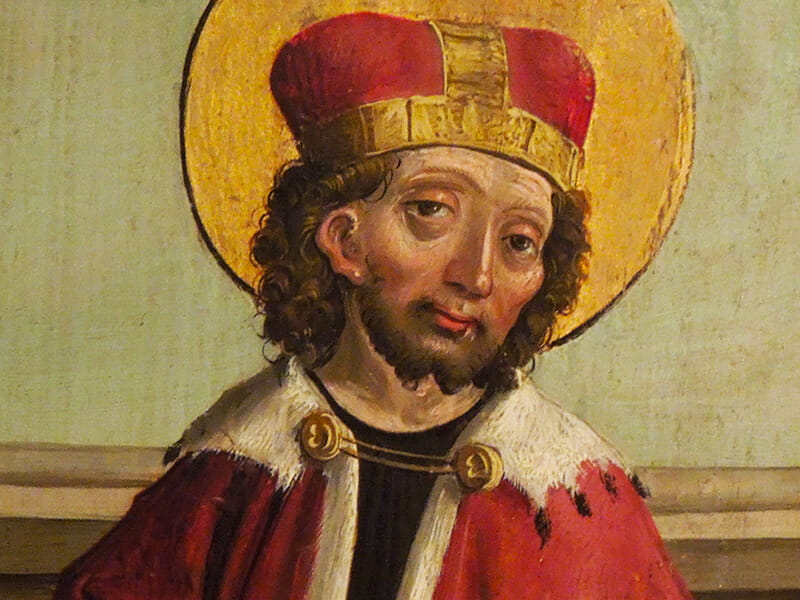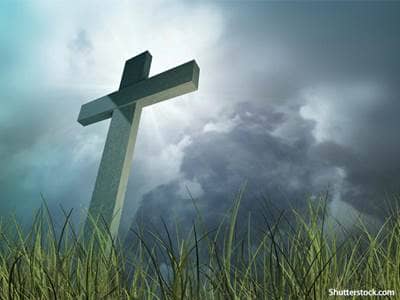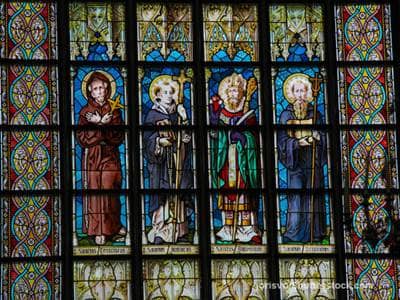St. Wenceslaus (907?-929)

If saints have been falsely characterized as "otherworldly," the life of Wenceslaus stands as an example to the contrary: He stood for Christian values in the midst of the political intrigues which characterized 10th-century Bohemia.
He was born in 907 near Prague, son of the Duke of Bohemia. His saintly grandmother, Ludmilla, raised him and sought to promote him as ruler of Bohemia in place of his mother, who favored the anti-Christian factions. Ludmilla was eventually murdered, but rival Christian forces were victorious, and Wenceslaus was able to assume leadership of the government.
His rule was marked by efforts toward unification within Bohemia, support of the Church and peace-making negotiations with Germany, a policy which caused him trouble with the anti-Christian opposition. His brother Boleslav joined in the plotting, and in September of 929 invited Wenceslaus to Alt Bunglou for the celebration of the feast of Sts. Cosmas and Damian. On the way to Mass, Boleslav attacked his brother, and in the struggle, Wenceslaus was killed by supporters of Boleslav.
Although his death resulted primarily from political upheaval, Wenceslaus was hailed as a martyr for the faith, and his tomb became a pilgrimage shrine. He is hailed as the patron of the Bohemian people and of former Czechoslovakia.
-
St. Agatha (d. 251?)
-
St. Adalbert of Prague (956-97)
-
Sts. John Jones and John Wall (c. 1530-1598; 1620-1679)
-
Our Lady of Mount Carmel
-
St. Anthony of Padua (1195-1231)
-
Blessed John Francis Burte and Companions (d. 1792; d. 1794)
-
Blessed Junipero Serra (1713-1784)
-
Sts. Pontian and Hippolytus (d. 235)
-
Blessed Adolph Kolping (1813-1865)
-
Blessed Emmanuel Ruiz and Companions (1804-1860)


